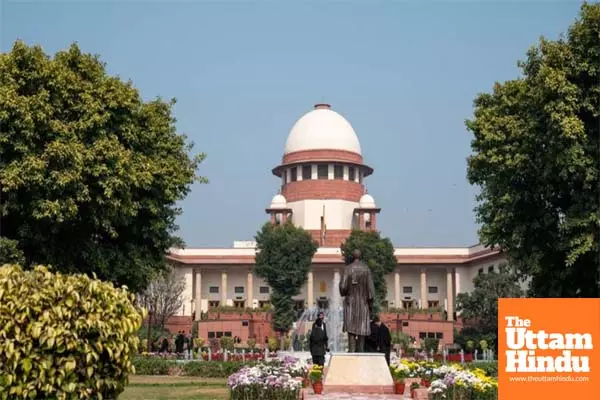
SC raps Centre over slow progress on rehabilitation of sex trafficking survivors, Calls for urgent action

New Delhi (The Uttam Hindu): The Supreme Court has directed the Centre to clarify its stance on creating a comprehensive rehabilitation framework for victims of sex trafficking, noting the existing legislative gap in this area. In a hearing led by Justice JB Pardiwala, the Court emphasized that human trafficking, especially sex trafficking, dehumanizes victims, violating their rights to life, freedom, and personal security. The Bench noted that vulnerable groups, particularly women and children, are disproportionately affected by such crimes. It also highlighted the severe physical and mental abuse victims endure at the hands of traffickers.
The Court was hearing a public interest litigation (PIL) regarding the implementation of a 2015 ruling on sexual assault victims. In its November 12 order, the Bench pointed out that the Centre had previously announced plans to set up an “Organised Crime Investigative Agency” (OCIA) under the Ministry of Home Affairs to address trafficking victims’ needs. However, the Centre later abandoned this idea and instead proposed amendments to the National Investigation Agency (NIA) Act. While the Trafficking of Persons (Prevention, Protection, and Rehabilitation) Bill was introduced in 2018 and 2021, it has not seen legislative progress.
The Court expressed concern that, as of now, there has been no substantial action in response to its earlier directive, which was aimed at addressing sex trafficking. The Bench stressed that the issue is "highly sensitive and important," urging the government to adopt a rehabilitative approach, particularly focusing on the long-term physical and mental health needs of trafficking victims.
The Court highlighted the range of challenges victims face, including life-threatening injuries, sexually transmitted diseases, PTSD, depression, substance abuse, and the societal stigma that further isolates them. It pointed out that victims often experience alienation from their families and communities, making their reintegration into society even more difficult. The Centre has been given three weeks to file an affidavit explaining its stance, with the matter to be heard again on December 10.

